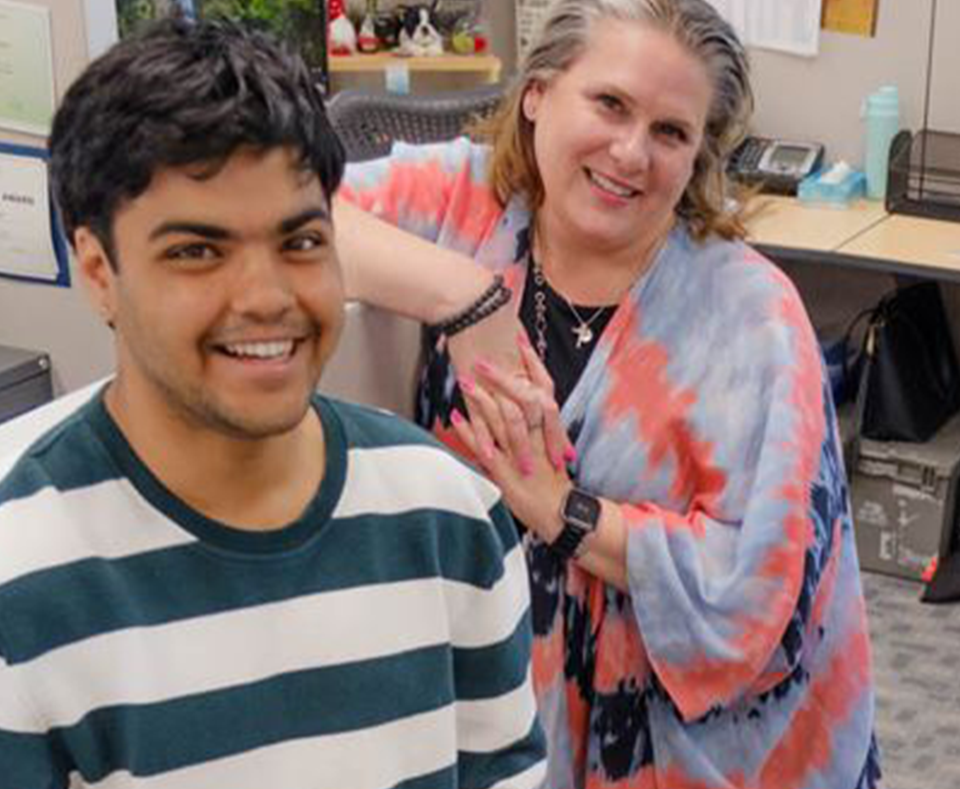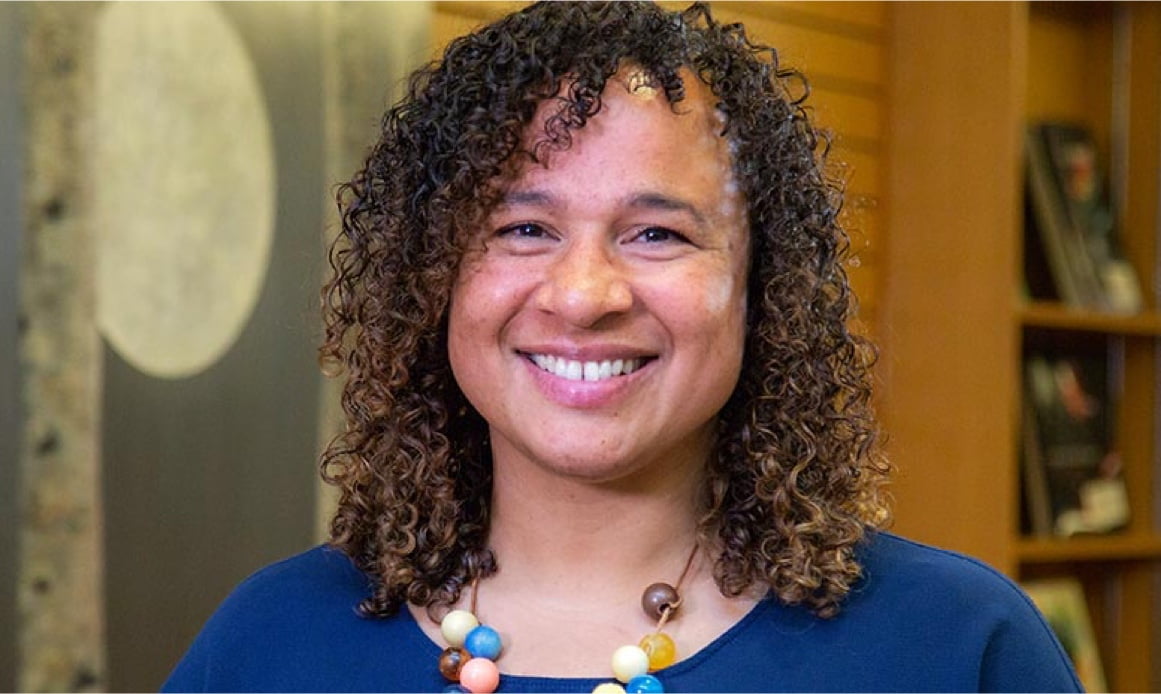Clinical Security Liaison Nurse, Maximum and MultiLevel Security Units FPS
Job Summary:
In accordance with the Mission, Vision and Values, and strategic directions of Provincial Health Services Authority patient safety is a priority and a responsibility shared by everyone at PHSA, and as such, the requirement to continuously improve quality and safety is inherent in all aspects of this position.
The Clinical Security Liaison Nurse (CSLN) works collaboratively as part of an interdisciplinary team and within a trauma informed practice and Indigenous Cultural lens to provide nursing care delivery and planning for forensic psychiatric patients. Functions as a mentor, experienced clinical resource and champion to clinical teams, provides guidance on clinical, procedural and physical, therapeutic and relational security issues, and leads clinical and security interventions to improve quality of care and patient health outcomes. Collaborates with interdisciplinary teams on the development, implementation and monitoring of safe working practices, procedures, policies and information that ensures security and safety to both patients, staff and visitors. Promotes education evidence based practice and research. Consults and collaborates with interdisciplinary team members, the leadership team and other health care professionals/providers to achieve excellence in patient/client and family centered care and enhancement in the quality of life consistent with established policies, standards of practice and philosophy of BC Mental Health and Substance Use Services. Leads the Violence Prevention Strategy for the Forensic Psychiatric Hospital. Further, the CSLN is a Provincial Violence Prevention Curriculum (PVPC) classroom instructor, which includes Advance Team Response (ATR). Responds to Code White and or emergency situations, providing demonstrations, clinical support, and guidance regarding ATR coordination, incident management, de-escalation and other site management issues. Supports staff with staff and patient debrief post incident. Provides Critical Incident Stress Management (CISM) support. Assists clinical teams with the development of behavioral care plans and risk management plans for patients. Leads the development of working practices, procedures, policies and information that ensures security and safety to patients, staff and visitors. Advances nursing and interdisciplinary practice in therapeutic and relational security; provides guidance on PVPC and safe work practices and education, and participates in the evaluation of performance as required.
Duties/Accountabilities:
1. Facilitates staff learning by acting as a clinical resource and demonstrates expertise and leadership in nursing and clinical practice by methods such as demonstrating patient de-escalation, PVPC, ATR (Code White) and seclusion entry procedures, answering questions related to clinical practice issues, problem solving, troubleshooting concerns and leading clinical and security interventions.
2. Works as an integral member of the interdisciplinary clinical team and provides patient clinical security and risk information and management advice as it relates to the development of risk assessments and treatment plans. Collaborates and assists clinical staff in the development of health outcomes that support patient recovery and therapeutic care. Provides information in the development of behavioural/treatment patient care plans and risk management plans for patients. Promotes the growth and development of an innovative and progressive attitude with a focus on the recovery of the patient while recognizing the need for therapeutic caution.
3. Collaborates with interdisciplinary teams to assist, recommend and guide safe seclusion care of patients and staff on FPH units, which includes following the policy and procedure. Collaborates with teams on, and supports colleagues with, patient transition out of seclusion. When requested plans and authorizes patient entry/exit of seclusion.
4. Supports members of the interdisciplinary team with clinical decision making regarding patient de-escalation, PVPC, ATR (Code White) and seclusion entry decisions and procedures. Evaluates performance of ATR team post incident by assisting with post incident debriefing with patient and clinical team and providing feedback to ensure care is provided according to program standards and clinical practice guidelines. Leads and coordinates mock PVPC ATR code white drills by guiding staff through refresher scenarios, observing staff performing activities and providing feedback to ensure scenario is completed according to established standards and clinical practice guidelines.
5. Provides critical feedback to leadership team about staff PVPC and ATR competencies, including skill development improvements post incident and post incident investigations. Provide direct follow up with staff to improve patient outcomes.
6. Attends aggressive or violent incidents within the Hospital that may have an unpredictable outcome, supports clinical staff colleagues by demonstrating, providing guidance, and information on clinical safety and security tasks to deescalate and manage the patient and the incident.
7. Carries out Critical Incident Stress Management (CISM) debriefing to staff and physician. Participates in incident investigations, reviews hospital policy, procedures and provides feedback to FPH leadership team from a clinical safety and security perspective.
8. Completes daily incident reports as required.
9. Attends interdisciplinary admission, patient care meetings and transition meetings as required and requested.
10. Consults and assesses with the admission team and clinical unit of potential high risk admissions and discharges including direct backs and breach returns to the hospital. Provides forensic clinical knowledge and patient management recommendations on high risk admissions, leaves, and discharges, and makes recommendations based on forensic risks to Director of Forensic Clinical Risk Assessment and Management and the clinical team.
11. Participates in the development, maintenance and delivery of high quality care, through the assessment, planning, implementation and evaluation of safe patient care processes within the Forensic Psychiatric Hospital. Sets, monitors, maintains, and promotes clinical security standards within all areas, particularly relating to the areas of the BC Mental Health Act, BCMHSUS Policies and Procedures.
12. Collaborates with Forensic Security Officers and/or local police as required for major incidents. Liaises with local Police, BC Corrections and Sheriffs as required to ensure appropriate communication and notification of risk issues as required to ensure safe delivery of patient care.
13. Participates and/or leads investigations that can lead to Quality Improvement and Safety for patients and staff. Implements and reviews practice ensuring organizational and BCMHSUS objectives are achieved. Supports the hospital through their involvement in groups or working committees charged with development of policy and procedure or service changes.
14. Assists in the recruitment and interviews of clinical staff. Carries out specific orientation training for staff from all disciplines to ensure a safe and secure environment.
15. Delivers formal classroom PVPC and Advance Team Response training relating to clinical security at the Forensic Psychiatric Hospital and BCMHSUS centres, which includes assessment of training uptake to ensure the competence of those nurses and other staff in the unit. Delivers formal Therapeutic and Relational Security training to all clinical staff at the hospital by role modeling to staff in a classroom or at designated workstation. Supports the clinical work of other disciplines within the units and off-unit areas to support staff, and teaches other clinical and non-clinical staff. Liaises with internal educators and management to coordinate the introduction of new skills/procedures and arrangement of training sessions as required. Provides mechanical restraints (Pinel restraints) classroom training as well as just-in-time training to clinical staff at the point of care.
16. Participates in the evaluation of the effectiveness of educational programs, activities and resources by analysing learning outcomes using program/resource evaluation, learner behaviours, utilization statistics, and reviewing feedback to identify opportunities and formulate recommendations for quality improvement.
17. Keeps up-to-date of evidence based research, trends and developments in clinical and relational security and participates in the planning, development and evaluation of new ideas and methods for the constant improvement of BCMHSUS.
18. Deals with all safety and security relevant complaints, including significant complaint investigations and critical incident reviews, quality improvement across the hospital. This involves the development of recommendations on patient care, policy review and security practice.
19. Carries out responsibilities in accordance with health and safety requirements. Promotes awareness of Work Safe BC and Occupational Health and Safety standards by reviewing standards with staff to determine adherence.
20. Immediately reports unsafe situations by notifying supervisor or other appropriate personnel and using online patient safety learning system (PSLS). Assists the CSM in leading review of safety events as a handler such as, interviewing patients/clients/families to investigate clinical components of incident reports; refers performance related issues to the CSM. Shares learning from safety events with team members and incorporates recommendations within clinical practice to enhance client safety.
21. Performs other related duties as required.
Qualifications:
Education, Training and Experience
• Graduation from an approved School of Nursing with current practicing registration as an RN or RPN with the British Columbia College of Nursing Professionals (BCCNP).
• Completion of post basic specialty nursing certificate/program if applicable, and three (3) years' recent, related experience in the designated clinical area, including working with individuals with mental health and substance use disorders, and including one (1) year's related administrative/supervisory experience, or an equivalent combination of education, training and experience.
• Valid BC Driver's License and access to personal vehicle for local area travel may be required.
• Successful completion of PVPC, ATR, and Therapeutic and Relational Security (See ThinkACT) educator/ trainer training.
• Successful completion of CISM training.
• Current CPR Certification.
Skills and Abilities
• Knowledge of complex mental illness, substance use and concurrent disorders and treatment, and of the principles of recovery.
• Knowledge of Psychosocial Rehabilitation methodology, substance dependency and substance use treatment, psychopharmacology (indications and side-effects) and psychotherapeutic and counseling skills.
• Knowledge of Trauma-Informed Practice and its application to the defined population of clients.
• Demonstrated ability to provide effective leadership, supervision, work direction and consultation.
• Demonstrated ability to conduct comprehensive mental health and substance use clinical and risk assessments, utilizing relevant tools and rating scales, and formulate a treatment plan, participate in transition planning and provide crisis intervention.
• Ability to apply knowledge of theory and practice to a case management process.
• Demonstrated ability to communicate (orally and in writing) and collaborate effectively with patients/clients and their families, coworkers, physicians, other health care staff, and staff of external agencies.
• Knowledge of primary, secondary and tertiary care programs and relevant, community resources.
• Knowledge of health care disciplines and their role in client/family care and service provision.
• Knowledge of evidence informed nursing practice related to designated clinical area.
• Knowledge of legislation and government policies and procedures that relate to patients/clients, including the BC Mental Health Act, Forensic Psychiatry Act and the Criminal Code of Canada as it relates to the Forensic Psychiatric Services Commission.
• Demonstrated clinical experience, knowledge and understanding of patient clinical issues, promotion of choice, respect and dignity.
• Demonstrated ability to develop and deliver educational materials for staff/patients/clients and families based on education theories, principles and best practices.
• Demonstrated ability to promote a supportive, creative learning environment and lead continuous quality improvement.
• Demonstrated critical thinking and problem solving skills.
• Demonstrated ability to effectively plan, organize and prioritize work.
• Demonstrated ability to work collaboratively as a member of an interdisciplinary team.
• Demonstrated ability to set priorities, adjust to unexpected events, mediate and deal with conflict.
• Demonstrated ability to effectively lead change and support staff through transitions.
• Knowledge of basic research, e.g. research ethics, research question, hypothesis and qualitative and quantitative data analyses methods.
• Demonstrated ability to perform CPR.
• Demonstrated computer literacy to operate a computerized client care information system as well as applicable word processing, spreadsheet and database software applications.
• Ability to operate related equipment.
• Demonstrated physical ability to perform the duties of the position.
In accordance with the Mission, Vision and Values, and strategic directions of Provincial Health Services Authority patient safety is a priority and a responsibility shared by everyone at PHSA, and as such, the requirement to continuously improve quality and safety is inherent in all aspects of this position.
The Clinical Security Liaison Nurse (CSLN) works collaboratively as part of an interdisciplinary team and within a trauma informed practice and Indigenous Cultural lens to provide nursing care delivery and planning for forensic psychiatric patients. Functions as a mentor, experienced clinical resource and champion to clinical teams, provides guidance on clinical, procedural and physical, therapeutic and relational security issues, and leads clinical and security interventions to improve quality of care and patient health outcomes. Collaborates with interdisciplinary teams on the development, implementation and monitoring of safe working practices, procedures, policies and information that ensures security and safety to both patients, staff and visitors. Promotes education evidence based practice and research. Consults and collaborates with interdisciplinary team members, the leadership team and other health care professionals/providers to achieve excellence in patient/client and family centered care and enhancement in the quality of life consistent with established policies, standards of practice and philosophy of BC Mental Health and Substance Use Services. Leads the Violence Prevention Strategy for the Forensic Psychiatric Hospital. Further, the CSLN is a Provincial Violence Prevention Curriculum (PVPC) classroom instructor, which includes Advance Team Response (ATR). Responds to Code White and or emergency situations, providing demonstrations, clinical support, and guidance regarding ATR coordination, incident management, de-escalation and other site management issues. Supports staff with staff and patient debrief post incident. Provides Critical Incident Stress Management (CISM) support. Assists clinical teams with the development of behavioral care plans and risk management plans for patients. Leads the development of working practices, procedures, policies and information that ensures security and safety to patients, staff and visitors. Advances nursing and interdisciplinary practice in therapeutic and relational security; provides guidance on PVPC and safe work practices and education, and participates in the evaluation of performance as required.
Duties/Accountabilities:
1. Facilitates staff learning by acting as a clinical resource and demonstrates expertise and leadership in nursing and clinical practice by methods such as demonstrating patient de-escalation, PVPC, ATR (Code White) and seclusion entry procedures, answering questions related to clinical practice issues, problem solving, troubleshooting concerns and leading clinical and security interventions.
2. Works as an integral member of the interdisciplinary clinical team and provides patient clinical security and risk information and management advice as it relates to the development of risk assessments and treatment plans. Collaborates and assists clinical staff in the development of health outcomes that support patient recovery and therapeutic care. Provides information in the development of behavioural/treatment patient care plans and risk management plans for patients. Promotes the growth and development of an innovative and progressive attitude with a focus on the recovery of the patient while recognizing the need for therapeutic caution.
3. Collaborates with interdisciplinary teams to assist, recommend and guide safe seclusion care of patients and staff on FPH units, which includes following the policy and procedure. Collaborates with teams on, and supports colleagues with, patient transition out of seclusion. When requested plans and authorizes patient entry/exit of seclusion.
4. Supports members of the interdisciplinary team with clinical decision making regarding patient de-escalation, PVPC, ATR (Code White) and seclusion entry decisions and procedures. Evaluates performance of ATR team post incident by assisting with post incident debriefing with patient and clinical team and providing feedback to ensure care is provided according to program standards and clinical practice guidelines. Leads and coordinates mock PVPC ATR code white drills by guiding staff through refresher scenarios, observing staff performing activities and providing feedback to ensure scenario is completed according to established standards and clinical practice guidelines.
5. Provides critical feedback to leadership team about staff PVPC and ATR competencies, including skill development improvements post incident and post incident investigations. Provide direct follow up with staff to improve patient outcomes.
6. Attends aggressive or violent incidents within the Hospital that may have an unpredictable outcome, supports clinical staff colleagues by demonstrating, providing guidance, and information on clinical safety and security tasks to deescalate and manage the patient and the incident.
7. Carries out Critical Incident Stress Management (CISM) debriefing to staff and physician. Participates in incident investigations, reviews hospital policy, procedures and provides feedback to FPH leadership team from a clinical safety and security perspective.
8. Completes daily incident reports as required.
9. Attends interdisciplinary admission, patient care meetings and transition meetings as required and requested.
10. Consults and assesses with the admission team and clinical unit of potential high risk admissions and discharges including direct backs and breach returns to the hospital. Provides forensic clinical knowledge and patient management recommendations on high risk admissions, leaves, and discharges, and makes recommendations based on forensic risks to Director of Forensic Clinical Risk Assessment and Management and the clinical team.
11. Participates in the development, maintenance and delivery of high quality care, through the assessment, planning, implementation and evaluation of safe patient care processes within the Forensic Psychiatric Hospital. Sets, monitors, maintains, and promotes clinical security standards within all areas, particularly relating to the areas of the BC Mental Health Act, BCMHSUS Policies and Procedures.
12. Collaborates with Forensic Security Officers and/or local police as required for major incidents. Liaises with local Police, BC Corrections and Sheriffs as required to ensure appropriate communication and notification of risk issues as required to ensure safe delivery of patient care.
13. Participates and/or leads investigations that can lead to Quality Improvement and Safety for patients and staff. Implements and reviews practice ensuring organizational and BCMHSUS objectives are achieved. Supports the hospital through their involvement in groups or working committees charged with development of policy and procedure or service changes.
14. Assists in the recruitment and interviews of clinical staff. Carries out specific orientation training for staff from all disciplines to ensure a safe and secure environment.
15. Delivers formal classroom PVPC and Advance Team Response training relating to clinical security at the Forensic Psychiatric Hospital and BCMHSUS centres, which includes assessment of training uptake to ensure the competence of those nurses and other staff in the unit. Delivers formal Therapeutic and Relational Security training to all clinical staff at the hospital by role modeling to staff in a classroom or at designated workstation. Supports the clinical work of other disciplines within the units and off-unit areas to support staff, and teaches other clinical and non-clinical staff. Liaises with internal educators and management to coordinate the introduction of new skills/procedures and arrangement of training sessions as required. Provides mechanical restraints (Pinel restraints) classroom training as well as just-in-time training to clinical staff at the point of care.
16. Participates in the evaluation of the effectiveness of educational programs, activities and resources by analysing learning outcomes using program/resource evaluation, learner behaviours, utilization statistics, and reviewing feedback to identify opportunities and formulate recommendations for quality improvement.
17. Keeps up-to-date of evidence based research, trends and developments in clinical and relational security and participates in the planning, development and evaluation of new ideas and methods for the constant improvement of BCMHSUS.
18. Deals with all safety and security relevant complaints, including significant complaint investigations and critical incident reviews, quality improvement across the hospital. This involves the development of recommendations on patient care, policy review and security practice.
19. Carries out responsibilities in accordance with health and safety requirements. Promotes awareness of Work Safe BC and Occupational Health and Safety standards by reviewing standards with staff to determine adherence.
20. Immediately reports unsafe situations by notifying supervisor or other appropriate personnel and using online patient safety learning system (PSLS). Assists the CSM in leading review of safety events as a handler such as, interviewing patients/clients/families to investigate clinical components of incident reports; refers performance related issues to the CSM. Shares learning from safety events with team members and incorporates recommendations within clinical practice to enhance client safety.
21. Performs other related duties as required.
Qualifications:
Education, Training and Experience
• Graduation from an approved School of Nursing with current practicing registration as an RN or RPN with the British Columbia College of Nursing Professionals (BCCNP).
• Completion of post basic specialty nursing certificate/program if applicable, and three (3) years' recent, related experience in the designated clinical area, including working with individuals with mental health and substance use disorders, and including one (1) year's related administrative/supervisory experience, or an equivalent combination of education, training and experience.
• Valid BC Driver's License and access to personal vehicle for local area travel may be required.
• Successful completion of PVPC, ATR, and Therapeutic and Relational Security (See ThinkACT) educator/ trainer training.
• Successful completion of CISM training.
• Current CPR Certification.
Skills and Abilities
• Knowledge of complex mental illness, substance use and concurrent disorders and treatment, and of the principles of recovery.
• Knowledge of Psychosocial Rehabilitation methodology, substance dependency and substance use treatment, psychopharmacology (indications and side-effects) and psychotherapeutic and counseling skills.
• Knowledge of Trauma-Informed Practice and its application to the defined population of clients.
• Demonstrated ability to provide effective leadership, supervision, work direction and consultation.
• Demonstrated ability to conduct comprehensive mental health and substance use clinical and risk assessments, utilizing relevant tools and rating scales, and formulate a treatment plan, participate in transition planning and provide crisis intervention.
• Ability to apply knowledge of theory and practice to a case management process.
• Demonstrated ability to communicate (orally and in writing) and collaborate effectively with patients/clients and their families, coworkers, physicians, other health care staff, and staff of external agencies.
• Knowledge of primary, secondary and tertiary care programs and relevant, community resources.
• Knowledge of health care disciplines and their role in client/family care and service provision.
• Knowledge of evidence informed nursing practice related to designated clinical area.
• Knowledge of legislation and government policies and procedures that relate to patients/clients, including the BC Mental Health Act, Forensic Psychiatry Act and the Criminal Code of Canada as it relates to the Forensic Psychiatric Services Commission.
• Demonstrated clinical experience, knowledge and understanding of patient clinical issues, promotion of choice, respect and dignity.
• Demonstrated ability to develop and deliver educational materials for staff/patients/clients and families based on education theories, principles and best practices.
• Demonstrated ability to promote a supportive, creative learning environment and lead continuous quality improvement.
• Demonstrated critical thinking and problem solving skills.
• Demonstrated ability to effectively plan, organize and prioritize work.
• Demonstrated ability to work collaboratively as a member of an interdisciplinary team.
• Demonstrated ability to set priorities, adjust to unexpected events, mediate and deal with conflict.
• Demonstrated ability to effectively lead change and support staff through transitions.
• Knowledge of basic research, e.g. research ethics, research question, hypothesis and qualitative and quantitative data analyses methods.
• Demonstrated ability to perform CPR.
• Demonstrated computer literacy to operate a computerized client care information system as well as applicable word processing, spreadsheet and database software applications.
• Ability to operate related equipment.
• Demonstrated physical ability to perform the duties of the position.
Learn More
Related Content
-
 Our Programs Explore to find the right program for you at PHSA.
Our Programs Explore to find the right program for you at PHSA. -
 Rewarding Health Care Nursing Careers and Jobs with PHSA Provide specialty nursing in clinical health care and research. Explore careers throughout B.C. with the Provincial Health Services Authority (PHSA).
Rewarding Health Care Nursing Careers and Jobs with PHSA Provide specialty nursing in clinical health care and research. Explore careers throughout B.C. with the Provincial Health Services Authority (PHSA). -
 Indigenous Health Care Jobs and Careers with PHSA Join our thriving Indigenous workforce in a corporate or clinical role. Explore careers in B.C. with the Provincial Health Services Authority (PHSA).
Indigenous Health Care Jobs and Careers with PHSA Join our thriving Indigenous workforce in a corporate or clinical role. Explore careers in B.C. with the Provincial Health Services Authority (PHSA). -
 Physician Careers at PHSA Our PHSA medical leadership team provides care that is among the best in the world, contributing to research that is changing the future of health care.
Physician Careers at PHSA Our PHSA medical leadership team provides care that is among the best in the world, contributing to research that is changing the future of health care. -
 Health Care Correctional Health Services Jobs and Careers With PHSA Correctional Health Services provides exceptional care for incarcerated patients. Join us in a career with Provincial Health Services Authority (PHSA).
Health Care Correctional Health Services Jobs and Careers With PHSA Correctional Health Services provides exceptional care for incarcerated patients. Join us in a career with Provincial Health Services Authority (PHSA). -

-

-
 Talent on Demand Talent on Demand is PHSA’s unique in-house recruitment program offering temporary employment opportunities in health care across British Columbia.
Talent on Demand Talent on Demand is PHSA’s unique in-house recruitment program offering temporary employment opportunities in health care across British Columbia. -
 PHSA recognized as a Top Employer in BC PHSA has been named one of BC's Top Employers for 2024 and 2025, recognizing its commitment to a supportive, enriching workplace. Join our award-winning team—apply today!
PHSA recognized as a Top Employer in BC PHSA has been named one of BC's Top Employers for 2024 and 2025, recognizing its commitment to a supportive, enriching workplace. Join our award-winning team—apply today! -
 Infection Prevention and Control Careers Become a member of the Infection Prevention and Control (IPAC) team and play a critical role in improving patient care by preventing the spread of infections across our health care system.
Infection Prevention and Control Careers Become a member of the Infection Prevention and Control (IPAC) team and play a critical role in improving patient care by preventing the spread of infections across our health care system. -
 British Columbia Lifestyle Located on Canada’s west coast, the province of British Columbia offers a range of lifestyle options including urban bustle, suburban convenience, rural adventure, and small-town living.
British Columbia Lifestyle Located on Canada’s west coast, the province of British Columbia offers a range of lifestyle options including urban bustle, suburban convenience, rural adventure, and small-town living.
Jobs for You
- Nurse, Clinical Informatics Specialist Sep. 25, 2025
- Nurse, Clinical Informatics Specialist Sep. 25, 2025
- TeleNurse Sep. 25, 2025
You have not recently viewed any jobs
You have not saved any jobs












